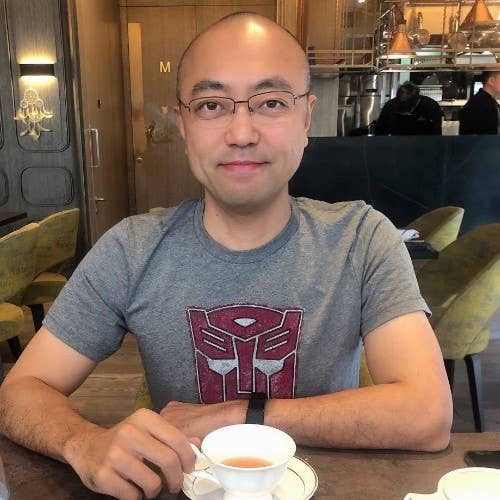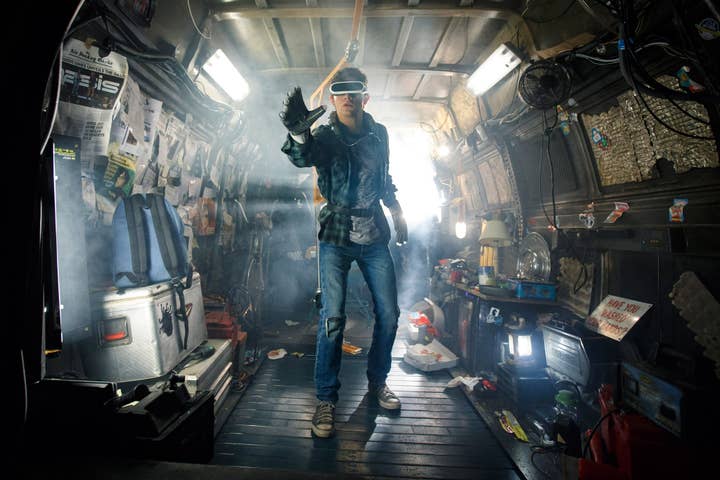Getting physical: Understanding a future shaped by the metaverse
MultiMetaverse CEO Alex Xu considers a realistic vision for the metaverse, and what it means for the future of games
Playable Futures is a collection of insights, interviews and articles from global games leaders sharing their visions of where the industry will go next. This article series has been brought to you by GamesIndustry.biz, Ukie, Sumo Group and Diva.
As the conversation around what the metaverse will be continues to fascinate technologists, game makers, press and public alike, defining what it will be has become somewhat confused by hype, enthusiasm, and the influence of science fiction.
While some players wonder when they will step into Ready Player One's fantastical future, those actually working on shaping the metaverse still see tremendous value in asking what exactly it could - and should - be. One of those people is Alex Xu, who brings over 27 years of experience working in games and technology, having served companies including EA, SNK and Leyou Technologies. Today he stands as CEO of MultiMetaverse, a holding company that brings together numerous active projects focused on games, animation and merchandising, and that has a determined focus on helping understand and realise the potential of the metaverse.

For Xu, asking what the metaverse is remains a vital conversation.
"I think it remains the most important question about the metaverse," he enthuses. "And I think the most important thing for the metaverse comes in terms of how it is different from the virtual worlds that we are all familiar with. Because, you know, us gaming company people have been building immersive virtual worlds for three decades or more. If you think of the metaverse as just a virtual world, that's not something new."
Material Matters
In fact, says Xu, it is the familiar physical world around us that really defines the metaverse and its influence on the future of games.
"What is the key difference in this concept called the metaverse is that we're not talking about a pure virtual world. At least, I don't think we should be. My definition is that the metaverse has to offer some kind of merging of the virtual world and the physical world. That's where the opportunity is. A lot of people today suggest that the metaverse is about everybody living in a virtual world together, but that's still just a virtual world.
"Yet we all gain so much from the physical world, and that's what is so exciting about the metaverse - it lets you leverage virtual technology to augment or improve how we experience the physical world. That might mean your work life, the games and other entertainment you consume, or how you socialise. It's about how we can bring the gains of the physical and digital worlds together."
"That's what's so exciting about the metaverse, it lets you leverage virtual technology to augment or improve how we experience the physical world"
That's a vision that suggests a great many things from our physical and digital lives can be part of the metaverse. Furthermore, the metaverse might look very different depending on where you view it from.
"The crypto guys think that their technology and decentralised approach will define the metaverse. I'm sure it will be part of it, but it doesn't define the metaverse" Xu posits. "The same is true of the hardware and tools that we use to build the metaverse. We will see a lot of different technologies used to make the metaverse, but they also do not define it."
In other words, the metaverse is not defined by its constituent parts, or even the technologies it embraces. Rather, it is a concept that an endless list of things can plug into: gaming, work life, socialising, broadcast, sports, creative pursuits, performance, and a great deal more besides.
"Think of a meeting or social gathering where some people are in the room and some are joining virtually," Xu suggests. "We have all experienced that. But in the metaverse, there won't be much distinction between the physical and virtual attendees. Users in the room wearing some kind of augmenting glasses will see the avatars of virtual guests sitting amongst them. If you take that and think about games that could be experienced by people joining together in those ways, I think the metaverse presents a very exciting future for game makers."
Magic Realism?
Xu is also keenly aware that numerous technological barriers sit as obstacles on the road to the metaverse's true potential. But he would encourage creators to consider that it is not all about a far flung future.
"There are those technological barriers, of course, and we have a lot of work to do," says a pragmatic Xu. "But again, we are not waiting for Ready Player One. Technologies like AR, VR, realtime rendering, faster connections and so on will all be part of it; and they are all already part of our daily lives. There's not a limit on what technology might become part of this, and some amazing new concepts are likely to appear in the years ahead. But we don't need to wait for magical technology from far in the future."
What we might see fairly soon, then, is the emergence of experiences that defy conventions around what counts as a game.
"It's going to become harder to talk about games in the metaverse and work in the metaverse and socialising in the metaverse as different things. Because another important part of the metaverse's future, as I see it, is that it is about breaking down what separates those things. Gaming is going to be increasingly defined by our ability to move between experiences, or exist across experiences."

That latter point is a significant one. While the idea that a user can effortlessly switch between the likes of a work and game is an interesting one - perhaps with the tap of the side of a pair of AR glasses - the real potential to innovate comes in new forms of games and entertainment existing in the overlap between intersecting experiences.
"We're going to be able to explore and create personal experiences and rooms and areas within and across those games," states an optimistic XU. "We'll start to see sharing game experiences and interacting with our real-world social interest groups and communities start to merge too. That's how to think about this future. We're not just talking about hopping between experiences, but about those experiences starting to blend and merge. The potential there is really exciting."
Xu has ample time for realism. He recognises there are many challenges beyond those technological barriers, from new legal frameworks that need establishing to considering our own wellbeing in an entirely new way to experience life. But for Xu the greater opportunity means those problems are well worth solving.
"We are going to see shifts across our lives," Xu concludes. "Things like travel, ownership, creativity, notions of presence, and even social status and finances and employment could see a lot of change. This is a new opportunity that is so vast, it's almost harder to imagine what won't be affected. But that is important too. The real world - and everything that is brilliant about it - will continue to exist. We can, will and should continue to enjoy that."
With over 27 years experience working across games and technology, MultiMetaverse CEO Alex Xu has served as an entrepreneur, game developer, investor, VC advisor, 3D engine creator, manager, and indie studio founder. He has held senior roles at EA, SNK, Leyou Technologies and many more.
